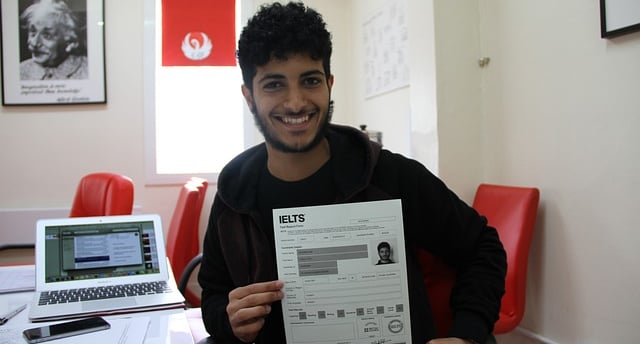Mastering IELTS Speaking: Tips, Techniques, and Common Mistakes to Avoid
6/18/20233 min read


Introduction
Welcome to our comprehensive guide on mastering IELTS speaking. The International English Language Testing System (IELTS) is widely recognized as a crucial assessment for non-native English speakers, assessing their proficiency in the English language. The speaking section of the IELTS exam can be particularly challenging for many test takers. However, with the right tips, techniques, and an understanding of common mistakes to avoid, you can enhance your performance and achieve success in this section.
Mastering IELTS Speaking: Tips, Techniques, and Common Mistakes to Avoid
1. Understanding the IELTS Speaking Test Structure
To excel in the IELTS speaking test, it is crucial to familiarize yourself with the test structure. The speaking section is divided into three parts: the introduction and interview, the individual long turn, and the two-way discussion. By understanding the structure, you can better manage your time and prepare effectively for each part.
2. Developing Strong Language Skills
A key aspect of excelling in the IELTS speaking test is having strong language skills. Focus on expanding your vocabulary, improving your grammar, and enhancing your pronunciation. Reading extensively, listening to English audio, and engaging in conversations with native speakers can significantly boost your language skills and help you express yourself confidently during the test.
3. Practicing Regularly with Sample Questions
To build your confidence and improve your performance, practice regularly with sample questions. There are numerous online resources and IELTS preparation books that provide a wide range of speaking prompts. Set aside dedicated practice sessions where you can simulate the test environment and record your responses for self-assessment.
4. Using Coherent and Cohesive Language
In the IELTS speaking test, it is essential to use coherent and cohesive language to convey your ideas effectively. Coherence refers to the logical flow of your speech, while cohesion relates to the appropriate use of linking words and phrases. Practice using transitional phrases like "in addition," "however," and "on the other hand" to connect your thoughts and create a smooth and coherent speech.
5. Engaging in Active Listening
Active listening plays a crucial role in the IELTS speaking test. Train yourself to listen attentively to the examiner's questions and any cues they provide during the test. This will help you respond appropriately and demonstrate your ability to understand and engage in meaningful conversations.
6. Managing Nervousness and Building Confidence
Nervousness can adversely affect your performance in the IELTS speaking test. Practice relaxation techniques such as deep breathing and positive visualization to manage nervousness. Additionally, build confidence by delivering practice speeches in front of a mirror or seeking opportunities to speak in public settings.
7. Time Management during the Test
Effective time management is vital in the IELTS speaking test. Pay close attention to the time limits for each part and practice pacing yourself accordingly. Avoid spending too much time on one question, as it may compromise your ability to complete the entire test within the allocated time.
8. Avoiding Memorized Responses
While preparation is essential, it is crucial to avoid memorizing responses. Examiners are trained to identify memorized answers, and it can negatively impact your score. Instead, focus on developing the ability to provide spontaneous and natural responses that showcase your language proficiency and critical thinking skills.
9. Using Paraphrasing and Synonyms
To demonstrate a wide range of vocabulary, make effective use of paraphrasing and synonyms. Instead of repeating the same words, try to express your ideas using different words with similar meanings. This will impress the examiner and enhance your overall score.
10. Seeking Professional Guidance and Feedback
Consider enrolling in an IELTS preparation course or seeking guidance from experienced tutors. They can provide valuable insights, personalized feedback, and help you identify and rectify your weaknesses. Professional guidance can significantly enhance your preparation and boost your confidence for the speaking test.
Conclusion
Mastering IELTS speaking requires a combination of language proficiency, strategic preparation, and effective test-taking techniques. By following the tips, techniques, and avoiding common mistakes highlighted in this guide, you can confidently approach the IELTS speaking test and achieve your desired score. Remember to practice regularly, seek professional guidance when needed, and maintain a positive mindset throughout your preparation journey.
